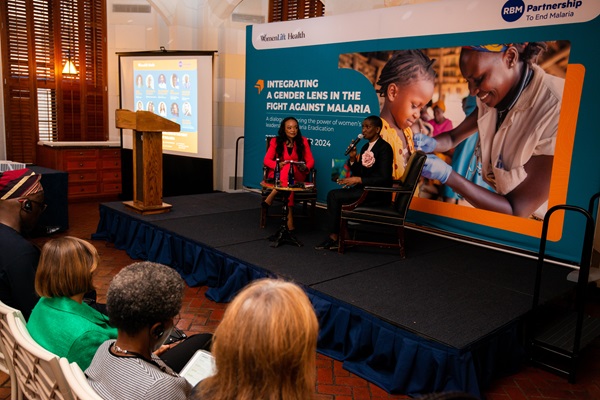
Stakeholders in the global fight against malaria have reaffirmed the critical role of women leaders in driving eradication efforts.
During a side event at the 79th United Nations General Assembly (UNGA), hosted by WomenLift Health and the RBM Partnership to End Malaria, global health leaders stressed the need for gender-responsive approaches to combat malaria and address growing threats from climate change. They emphasised that sustainable progress relies on women’s leadership.
The event, titled “Integrating a Gender Lens in the Fight Against Malaria: A Dialogue Exploring the Power of Women’s Leadership in Malaria Eradication,” brought together key players to discuss how increasing women’s representation in decision-making can transform global health strategies and deliver equitable outcomes.
“When it comes to malaria, the approaches that have gotten us this far won’t be enough to eliminate the disease for good,” said CEO of RBM Partnership to End Malaria, Dr. Adekunle Charles. “We need to adopt gender-sensitive and inclusive approaches.”
Cabo Verde’s Minister of Health, Dr. Filomena Mendez Goncalves emphasised the importance of leadership and collaboration, sharing how her father, a male ally, encouraged her to lead with confidence. “Raising girls into leaders starts at home. In the public sphere, we must provide clear and transparent political measures that equip women to lead—not because they are women, but because they are capable. Now is the moment.”
The discussion highlighted the underrepresentation of women in global health leadership, where they occupy only 25 per cent of senior roles despite making up nearly 70 per cent of the healthcare workforce. This gap is alarming, given malaria’s continued toll of over 600,000 lives annually, disproportionately affecting women and children in marginalised communities.
“Malaria disproportionately impacts women and young girls, both in terms of health and economically,” noted president of WomenLift Health, Amie Batson. “Women’s leadership is essential for developing innovative and gender-responsive solutions, especially as we face challenges like drug resistance and climate change.”
Experts also addressed the increasing threat posed by climate change, which is expected to escalate malaria transmission in endemic regions. Women leaders in vulnerable communities are already spearheading climate-resilient health interventions, but these efforts need more support and visibility.
Panelists discussed strategies to ensure equitable access to malaria vaccines, stressing that women leaders are pivotal in building trust and ensuring effective vaccine distribution in hard-hit areas.
Founder of SpeakUp Africa, Yacine Djibo concluded, “Empowering and funding women-led community organisations is key to ensuring more young women and girls participate in decision-making to improve health outcomes.”
The event closed with a call for stronger partnerships to integrate gender equality into malaria eradication efforts and to increase investment in women’s leadership programmes and climate adaptation strategies.

